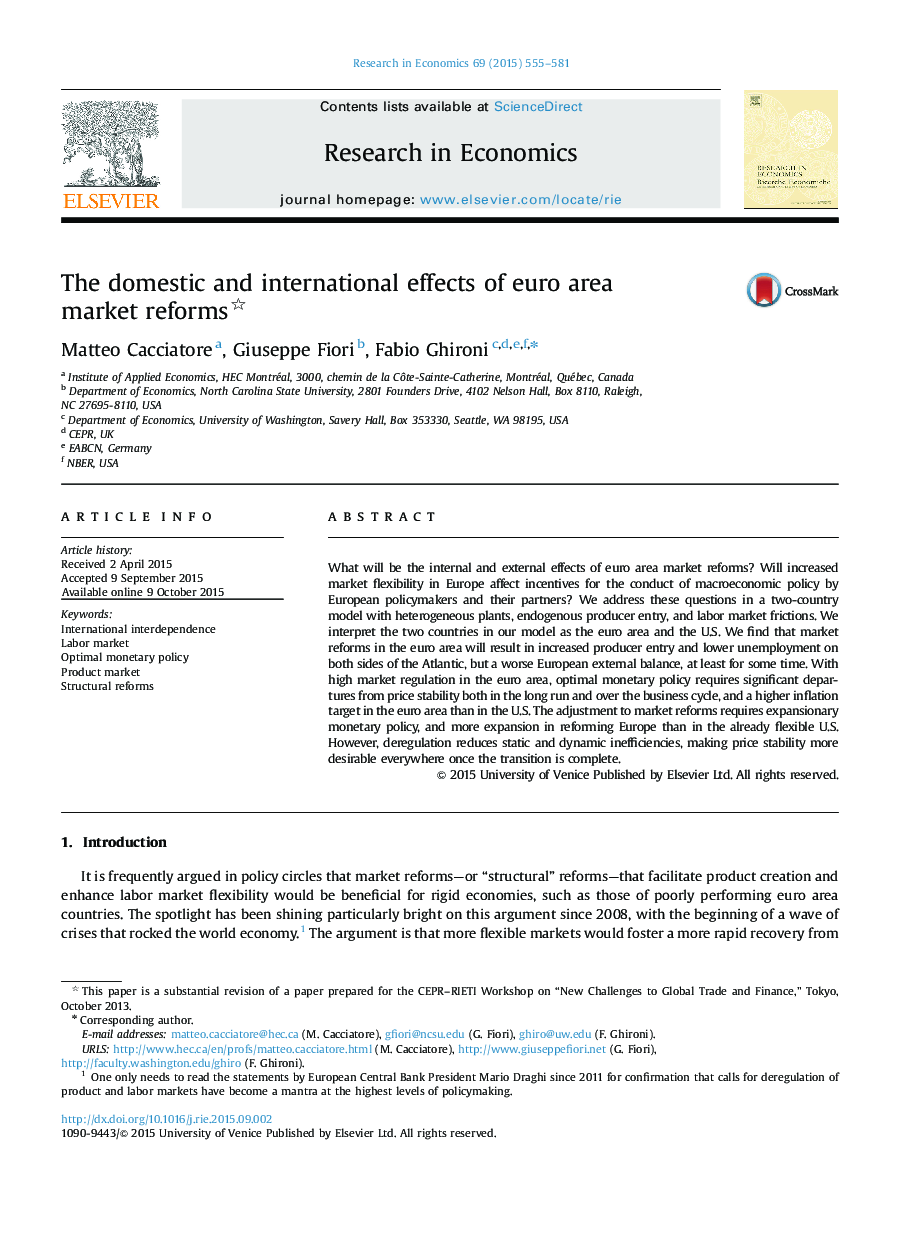| Article ID | Journal | Published Year | Pages | File Type |
|---|---|---|---|---|
| 984331 | Research in Economics | 2015 | 27 Pages |
•We study the effects of product and labor market reforms in the euro area.•Reform boosts employment domestically and abroad, although GDP can initially decline.•Terms of trade appreciate and the current account deteriorates, at least initially.•The optimal, cooperative monetary policy response to deregulation is expansionary.•Price stability becomes more desirable in the post-reform environment.
What will be the internal and external effects of euro area market reforms? Will increased market flexibility in Europe affect incentives for the conduct of macroeconomic policy by European policymakers and their partners? We address these questions in a two-country model with heterogeneous plants, endogenous producer entry, and labor market frictions. We interpret the two countries in our model as the euro area and the U.S. We find that market reforms in the euro area will result in increased producer entry and lower unemployment on both sides of the Atlantic, but a worse European external balance, at least for some time. With high market regulation in the euro area, optimal monetary policy requires significant departures from price stability both in the long run and over the business cycle, and a higher inflation target in the euro area than in the U.S. The adjustment to market reforms requires expansionary monetary policy, and more expansion in reforming Europe than in the already flexible U.S. However, deregulation reduces static and dynamic inefficiencies, making price stability more desirable everywhere once the transition is complete.
